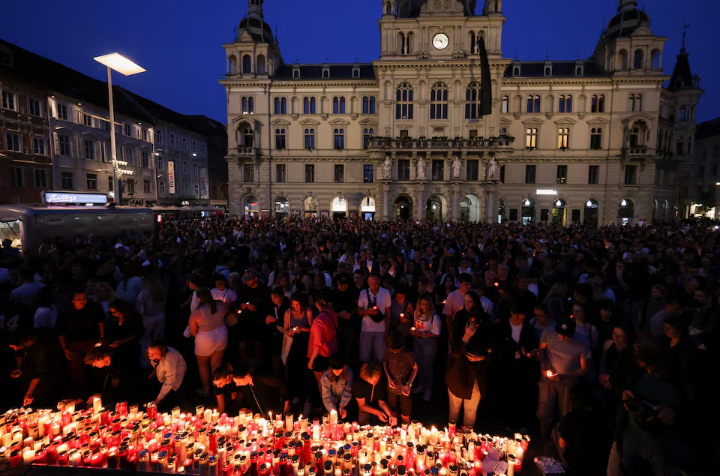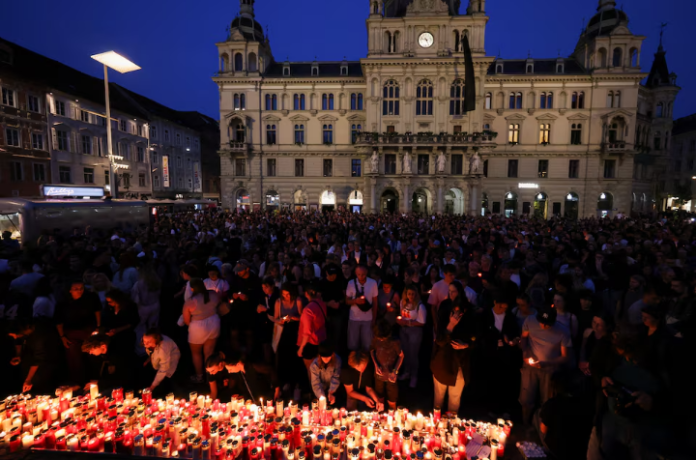A wave of tragic school shootings across Western Europe has triggered a growing fear: is the epidemic of gun violence, long associated with the United States, now spreading to Europe?
In just the past two years, Europe has experienced some of its worst school attacks in recent history. The most recent—a brutal killing of 11 people in Graz, Austria—has ignited widespread outrage and renewed pressure on European governments to take immediate action.
While school shootings are still more common in the U.S., the numbers in Europe are steadily climbing. Experts warn that the surge is driven in part by copycat behavior—with attackers inspired by high-profile U.S. massacres like the Columbine High School shooting. Criminologist Adam Lankford describes it as a disturbing export: “These attackers see others do it, and it has a snowball effect.”
According to research by Lankford and Jason Silva, mass shootings for the sake of fame are on the rise globally. Between 2005 and 2010, the U.S. had twice as many notoriety-driven shootings as the rest of the world. But by 2022, the rest of the world had caught up.
Europe’s Wake-Up Call In response to this growing threat, European countries are tightening laws and improving school safety measures:
Sweden is cracking down on semi-automatic weapons and revamping gun licensing procedures after the deadly attack in Örebro.
Finland has proposed harsher penalties for illegal gun possession following a school shooting involving a 12-year-old.
Croatia now mandates school security personnel after a fatal knife attack.
Germany has gradually restricted gun ownership and recently banned carrying knives at public events.
France is pushing for a ban on social media access for children under 15 following a deadly stabbing incident.
The European Union, however, leaves gun regulations and social media laws to individual member states—creating a patchwork response that experts argue may be insufficient.
Deeper Issues Behind the Violence Most school shooters are young males who feel marginalized or ignored in their everyday lives. Many are heavily involved in violent online games or toxic social media communities. Investigations into the Austrian shooter revealed he was socially withdrawn and obsessed with shooting games—common traits among other perpetrators worldwide.

“There’s a global trend,” says Lankford. “Even if they expect to die, some are excited about leaving behind a legacy.”
Resistance to Reform Despite mounting pressure, proposals to tighten gun laws still face pushback from lobby groups like hunters and sports shooting organizations. In countries like Austria and the Czech Republic, there’s concern over balancing safety with citizens’ rights to own firearms.
Still, public support for stronger laws is gaining momentum. Austrian President Alexander Van der Bellen has called for a reexamination of the country’s relatively loose gun laws.
As Europe confronts this escalating threat, one thing is clear: the idea that school shootings are “just an American problem” is no longer true.



